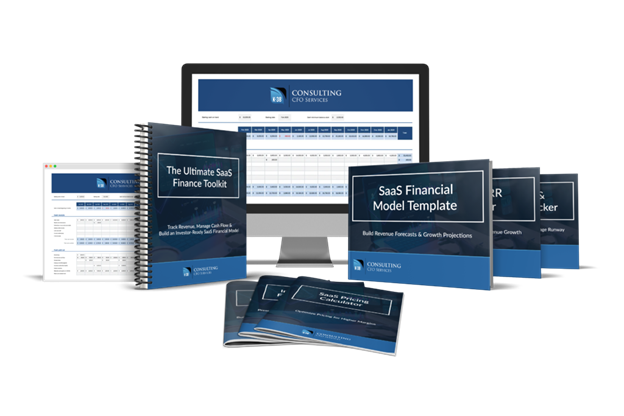The Bookkeeper’s Role in Effective Trade Spend Management
Understanding Trade Spend Management
Trade spend management refers to the process of planning, tracking, and optimizing the money businesses spend on trade promotions such as discounts, rebates, in-store displays, and special offers. These expenditures are especially common in industries like consumer packaged goods (CPG), where brands rely heavily on retail partnerships. While marketing and sales teams typically design promotional strategies, bookkeepers play a crucial behind-the-scenes role by ensuring all trade spend data is accurately recorded, analyzed, and reported.
Why Trade Spend Management Matters
Effective trade spend management directly impacts a company’s bottom line. When managed poorly, trade promotions can become a financial drain due to overspending, lack of visibility, and inaccurate forecasting. On the other hand, well-managed trade spend can increase market share, improve retailer relationships, and drive higher returns on investment.
This is where skilled bookkeepers come into play. By maintaining accurate financial records and providing reliable data, they help ensure every dollar spent is accounted for, justified, and contributes to business growth.
Bookkeeping and Trade Promotions: A Strategic Partnership
Recording Trade Spend Transactions
The foundation of successful trade spend management lies in properly recording every transaction. Bookkeepers are responsible for documenting all promotional expenses—discounts offered to retailers, cooperative marketing spends, free goods, rebates, and more. These records form the basis for trade spend analysis and budgeting decisions.
Categorizing and Allocating Costs
Trade promotions can be complex, involving various categories and cost centers. Bookkeepers must accurately classify these costs under appropriate accounts to ensure financial transparency. This allows finance teams to track how trade spend is distributed across different products, regions, and retail partners, which is essential for evaluating effectiveness.
Ensuring Compliance and Accuracy
Bookkeepers ensure that trade spend transactions comply with internal policies and external regulations. They verify that all trade promotion claims are supported by proper documentation and that payments align with contractual terms. By flagging inconsistencies early, they help prevent overpayments, fraud, and costly audits.
The Bookkeeper’s Role in Trade Spend Analysis
Providing Clean, Reliable Data
Before any meaningful analysis can occur, trade spend data must be clean, complete, and consistent. Bookkeepers ensure this by reconciling discrepancies, correcting errors, and maintaining up-to-date records. Accurate bookkeeping is the backbone of effective trade spend management because strategic decisions rely on trustworthy numbers.
Supporting Budget vs. Actual Comparisons
One of the key responsibilities of a bookkeeper in trade spend management is enabling real-time comparisons between budgeted and actual spending. This helps identify variances and understand the reasons behind them—whether due to retailer non-compliance, unexpected market changes, or poor forecasting.
Feeding Data into Forecasting Models
Forecasting future trade promotions requires historical data. Bookkeepers maintain detailed records that inform predictive models, allowing businesses to estimate future trade spend more accurately. With this insight, finance and sales teams can collaborate to create smarter, more targeted promotional plans.
Leveraging Technology for Better Bookkeeping
Using Accounting Software for Trade Spend Tracking
Modern bookkeeping tools offer features that simplify trade spend management. Many accounting platforms now integrate with trade promotion management (TPM) systems, allowing bookkeepers to automatically import, categorize, and reconcile expenses. This reduces manual errors and saves time.
Automating Reporting and Dashboards
Bookkeepers can use tools like QuickBooks, Xero, or NetSuite to generate custom reports and dashboards related to trade spend. These visualizations help business owners, CFOs, and sales managers understand where promotional dollars are going and how they’re performing.
Collaborating with Other Departments
Trade spend management requires cross-functional collaboration. Bookkeepers act as a bridge between departments—finance, sales, and marketing—by providing the financial clarity needed to align efforts. Their reports can guide pricing strategies, retailer negotiations, and promotional calendar planning.
Common Bookkeeping Challenges in Trade Spend Management
Handling Complex Payment Terms
Trade promotions often involve delayed payments, partial reimbursements, or clawbacks. Bookkeepers must navigate these complexities by tracking payment schedules, setting reminders, and updating receivables accurately. Failure to do so can lead to financial mismatches and strained retailer relationships.
Managing Disputes and Chargebacks
Retailers sometimes issue chargebacks for promotions they claim were not honored. Bookkeepers play a key role in resolving these disputes by providing transaction histories, promotional agreements, and supporting documentation. This protects the company’s finances and reputation.
Tracking Non-Monetary Promotions
Not all trade promotions involve direct payments—some may include free product giveaways, bonus packs, or bundled deals. Bookkeepers must accurately assign values to these non-cash transactions and record them in financial statements to reflect the true cost of trade spend.
Best Practices for Bookkeepers in Trade Spend Management
Maintain Detailed Documentation
Keep copies of all promotional agreements, invoices, receipts, and approvals. Well-organized documentation speeds up reconciliations, simplifies audits, and supports dispute resolution.
Stay Aligned with Sales and Marketing
Regularly meet with sales and marketing teams to stay informed about upcoming promotions. This ensures that all planned trade spend is expected, budgeted, and recorded accurately when executed.
Reconcile Monthly
Monthly reconciliation of trade spend accounts helps catch errors early. It also enables timely reporting, which is crucial for agile decision-making and performance tracking.
Adopt Trade Spend-Specific Tools
Use specialized trade spend management software if available. These tools offer advanced features like promotion tracking, accruals management, and integration with bookkeeping systems, making the job easier and more efficient.
Conclusion: Bookkeepers as Trade Spend Gatekeepers
Trade spend management is more than just a sales or marketing function—it’s a financially driven process that requires precision, accountability, and clear reporting. Bookkeepers are central to this ecosystem. They provide the structure, accuracy, and insights that ensure trade promotions deliver real value.
By understanding the strategic role of trade spend and mastering tools to track and manage it, bookkeepers become not just record keepers but key contributors to business profitability. In a competitive retail environment, where every promotion must justify its cost, effective trade spend management depends heavily on smart bookkeeping.







